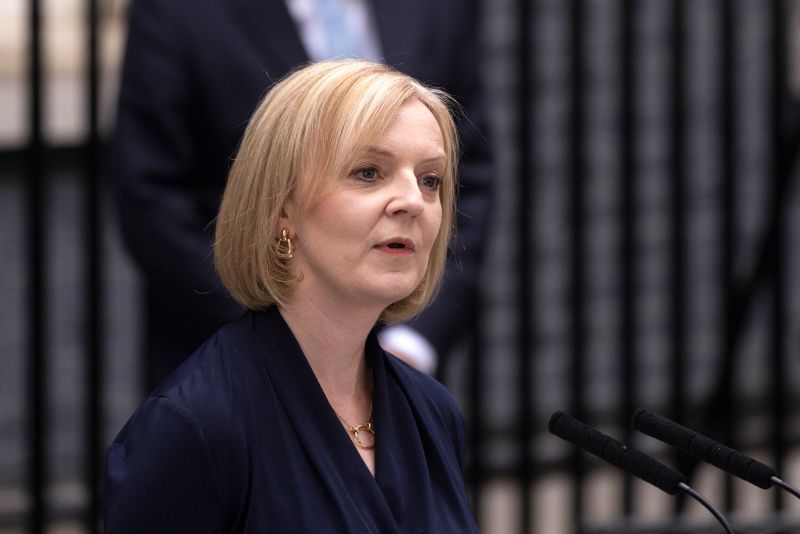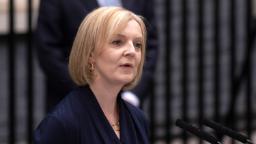

London
CNN Business
—
The United Kingdom’s new prime minister is reportedly preparing to commit as much as £150 billion ($172 billion) to shield households and businesses from soaring energy bills, increasing government borrowing at a time when investors are already on edge about the country’s finances.
Liz Truss, who earlier this week succeeded Boris Johnson, told lawmakers Wednesday that she would unveil her plans to tackle sky-high energy prices on Thursday.
Truss is drawing up plans to freeze the average annual energy bill for households at around £2,500 ($2,860) for the next two years, the Financial Times reported. That would mean bills rising by 27% from their current level, but keep them well below the £3,549 ($3,954) they would hit starting in October without government intervention.
It will be expensive. The FT reported that the plan could include £90 billion ($103 billion) in support to households, and up to £60 billion ($69 billion) for businesses, the FT said.
If so, that would outstrip the amount the government spent subsidizing the salaries of millions of workers during the pandemic to prevent mass layoffs by a whopping £80 billion ($91 billion). It would also dwarf the €95 billion ($94 billion) the German government has promised so far this year to help its households and businesses meet their energy costs.
Like the rest of Europe, the United Kingdom is grappling with how to pay for its ambitious relief package.
The details of Truss’ plans are still unclear, but she has already made one thing certain: The UK government is not imposing a new “windfall tax” on the bumper profits its energy companies.
On Wednesday, she ruled out extending the £5 billion ($6 billion) tax former finance minister Rishi Sunak introduced in May on UK oil and gas producers to fund an earlier energy relief package.
“I am against a windfall tax,” she told parliament. “I believe it is the wrong thing to be putting companies off investing in the United Kingdom just when we need to be growing the economy,” she added.
Truss has repeatedly promised to cut taxes, rather than raise them, in the hope of reviving the ailing economy. Without a windfall tax, she’s likely to have to increase government borrowing to subsidize bills.
Kwasi Kwarteng, the country’s new finance minister, also indicated over the weekend that more borrowing was on the way.
“Given the severity of the crisis we face, there will need to be some fiscal loosening to help people through the winter,” he wrote in the FT.
Yet heavy borrowing — in addition to the tax cuts and extra defense spending promised by Truss during her campaign — risks further spooking investors already worried that the UK’s finances are on an unsustainable path.
That could send the pound into a tailspin, which would further drive up prices and make it harder to pay for essential imports. The currency has already lost nearly 15% of its value against the US dollar this year.
But Britons are in desperate need of support, beyond the £33 billion ($39 billion) the Institute for Government (IfG) calculates the government has already committed this year. That help has come through a mix of tax cuts, energy bill rebates and direct payments to households, the IfG said.
Without a new plan to hold down prices, the average yearly bill for millions could top £5,700 ($6,513) from next April, according to a Wednesday estimate by research firm Auxilione. Bills for small businesses are rising at an even faster rate.
— Julia Horowitz contributed reporting.
